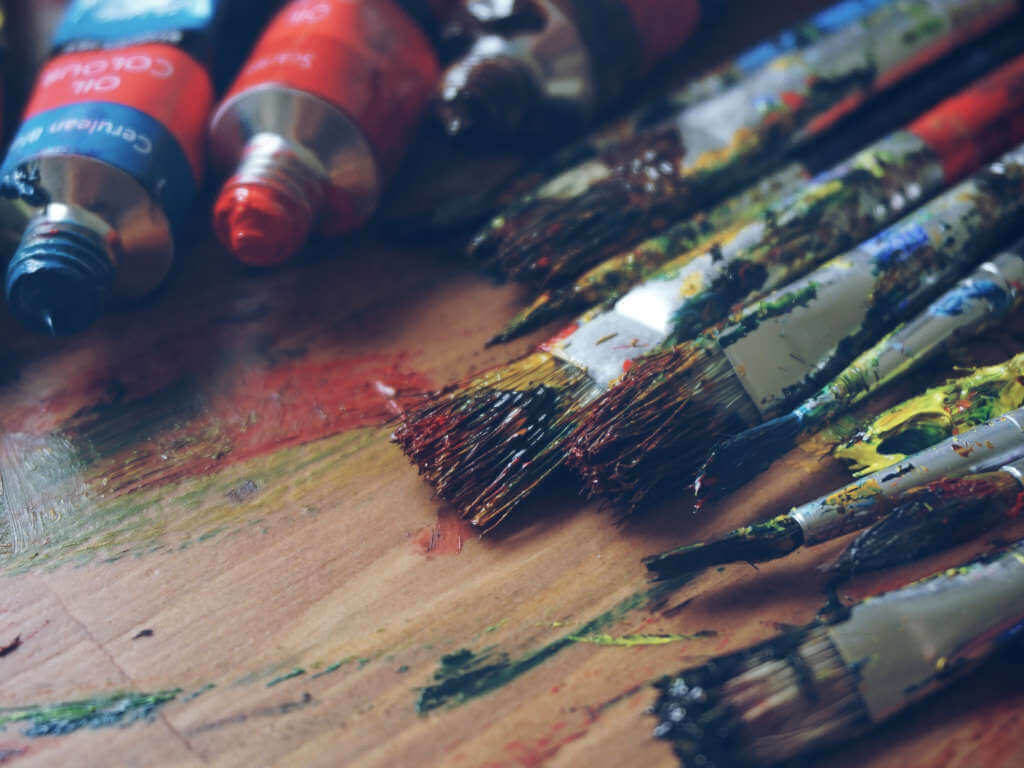Getting Sober Can Be Fun

Many people think going to rehab or getting sober is going to be a total snooze fest. They mistakenly believe sobriety is nothing more than a bunch or boring meetings, lame counseling sessions, and obnoxious groups. Not true!
Participating in new experiences during the healing process helps to create a new way of life beyond drinking and doing drugs. And – believe it or not – many people enjoy their personal recovery journey once they get to the other side of detox.
One of the ways sober people can become actively engaged in their own recovery is to participate in art therapy. Studies have shown that creativity positively impacts sobriety. Let’s talk more about this therapeutic approach and discuss how it can benefit someone who is recovering from a substance use disorder.
What is Art Therapy?
According to the American Art Therapy Association, “art therapy is an integrative mental health and human services profession that enriches the lives of individuals, families, and communities through active art-making, creative process, applied psychological theory, and human experience within a psychotherapeutic relationship.”
In more simple terms, art therapy (when facilitated by a qualified art therapist) encourages personal growth while effectively supporting addiction treatment goals. The process involves a creative outlet of some kind; such as painting, drawing, sculpting, or collage-making. In no uncertain terms, participating in art therapy greatly improves the likelihood of ongoing, continuous sobriety.
Art therapy can happen at a rehabilitation center or a therapist’s private practice. Many art therapy professionals also perform home visits.
What is an Art Therapist?
Art therapists are licensed master’s level clinicians who are guided by ethical therapeutic standards. Their extensive education and supervised training prepares them to work in the counseling field and provide art therapy sessions to those in need.
In order for a recovering person to experience art therapy in its clinical context, a certified art therapist should be involved in the process. An art therapist directs a session so that the participant enjoys the maximum benefit of the experience. Art therapy isn’t just about making pretty things. There is work involved!
Mental health experts will tell you that art therapy is just as valid (and effective) as popular talk therapies like Cognitive Behavioral Therapy (CBT) or Dialectic Behavioral Therapy (DBT).
Do You Need An Art Therapist to Participate in Art Therapy?
Addicted people should utilize a mental health professional during art therapy in the same way they would if they participated in CBT or DBT.
Many recovering people insist that they practice art therapy in the privacy of their own home in complete solitude. They might paint or draw as a way to process difficult emotions or counteract feelings of boredom, isolation, or loneliness.
We do not deny that people can appreciate the value of engaging in artistic activities alone. However; true art therapy should take place with an educated, trained, and licensed art therapist. Otherwise, it is not considered art therapy in the clinical sense – even if it may feel therapeutic to the soul.
The Many Benefits of Art Therapy in Addiction Recovery
Here are just a few of the many ways that art therapy is beneficial to people in recovery from drug or alcohol addiction:
- Provides exploration and release of emotions in a healthy way
- Improves self-esteem and confidence
- Positive outlet for resolving trauma
- Great stress reliever
- Allows for self-expression when there are no words
- Healthy coping skill
- Improves cognitive function and sensory motor skills
- Promotes social skills
- Enhances self-awareness
- Boosts a sense of spiritual connection
- Reduces distress and resolves conflict
- Constructive way to spend therapeutic time
- Improves symptoms of depression and anxiety
- Eases the process of drug or alcohol withdrawal
- It is fun!
The Link Between Creativity and the Healing of the Human Spirit
There is something cathartic about expressing yourself artistically. Just glance through the pages of the human history book. You will find that poetry, art, music, literature, and film have provided an emotional outlet for people throughout the ages. (Take a moment and think about how many popular songs are about being heartbroken during a breakup!)
Something special happens for people in recovery when they channel their thoughts and feelings and express them during an art therapy session. Many sober people say they are able to deeply communicate their innermost secrets during sessions in a way that they never could verbally.
Art therapy can be used in conjunction with a 12-Step recovery program like Alcoholics Anonymous. It is offered at many rehabilitation facilities and can be incorporated into an aftercare plan.
Get Your Therapy On – Unleash Your Inner Artist
If you are looking for a creative way to positively enhance your recovery journey, art therapy might be for you.
You do not have to be a Picasso in order to enjoy art therapy. In fact, if you have never picked up a paintbrush or a sketch pen, you will be in good hands with your therapist. No matter your artistic skillset (or lack thereof), you can still greatly benefit from taking part in this therapeutic approach in sobriety.
Art therapy is not so much about making artwork as it is about healing thyself. It promotes health and wellness in every aspect of the human experience through creativity. It will deepen your mental, emotional, physical, and spiritual connection to your innermost being and to the world around you. Give it a try!












